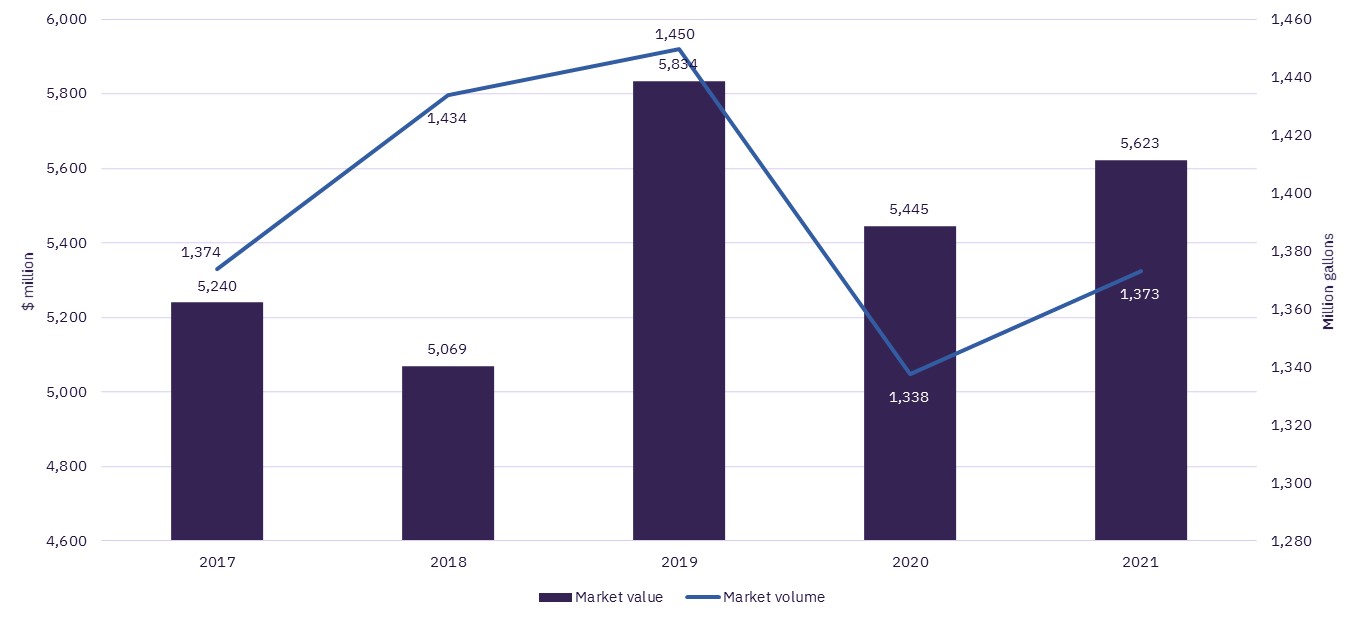Market Size of Biofuels in Germany (2017 – 2021)
-
The Market value of Biofuels in Germany reached $5,622.9 million in 2021
-
During the same period, the industry witnessed a Market volume of 1,373.1 million gallons
-
The industry recorded a historical growth (CAGR) of 1.8% between 2017 and 2021 in terms of value, while the underlying market volume declined (CAGR) by 0.0% between 2017 and 2021
Market Size of Biofuels in Germany (2017 – 2021)

Increasing demand for energy globally poses a threat to climate and the Paris Agreement’s goal of achieving a climate neutral world by 2050. The battle against climate change forces the countries to switch to low-carbon sources of energy such as biofuels. Fossil fuels, being one of the largest sources of greenhouse gas (GHG), are prompting companies to shift to the production of biofuels. For example, Shell has committed to reducing its carbon footprint by a fifth by 2035, which resulted in the company producing ethanol from sugarcane through Raízen.
Biofuels are derived from biomass, i.e., plant, animal waste, and algae, and are considered renewable sources since they can be replenished readily unlike oil, coal, and natural gas. Biofuels are segmented into biodiesel and ethanol. Biodiesel is manufactured from vegetable oils and animal fats, while ethanol is a form of alcohol produced from feedstock.
The global biofuel market is expected to grow as the world targets carbon neutrality by 2050. Germany is one of the five dominant markets, along with Brazil, France, Colombia, and United States.
Germany’s biofuel market is valued at $5623 million, with a market consumption volume of 1373 million gallons. The country’s market value declined at a CAGR of 1.8 % during 2017–21 while the underlying market volume was flat during the same period.
Germany’s biofuels market value has seen consistent growth over the last five years but was also impacted to COVID lockdowns resulting in a decline in 2020. The Germany government have laid out policies such as Federal Emission Control Act (BImSchG) to promote usage of alternative fuels or low carbon fuels in order to reduce emission from usage of fossil fuels. Germany government has also laid out a blending quota for biofuels, forcing fuel producing companies to push lesser polluting fuels such as biofuels.
Related Data & Insights
Related Companies
France
Germany
Germany
Italy
France
Japan
South Korea
United Kingdom
Don’t wait - discover a universe of connected data & insights with your next search. Browse over 28M data points across 22 industries.
Access more premium companies when you subscribe to Explorer